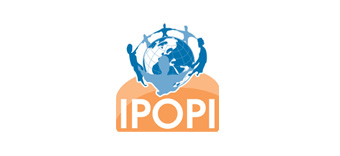December 19, 2022
IPOPI calls for increased plasma collection
Plasma is the source component for the development of immunoglobulin replacement therapies (Igs), a therapy prescribed to a majority of patients diagnosed with primary immunodeficiencies. The COVID-19 pandemic has underlined the importance of plasma collection for the development of therapies for patients.
There are several initiatives at different levels taking place on the topic of plasma collection in different parts of the world.
Revised legislation underway in Europe
At the European level, the revision of the legislation on substances of human origin (that includes the collection of blood and plasma) has started with the European Commission’s text. The Commission’s text provides a good basis to improve the availability of blood and plasma for the development of therapies: with the obligation to ensure crisis preparedness and monitor supply to address shortages and dependencies on other Member States or third countries; the inclusion of definitions that will clarify important concepts and the recognition of the importance of guaranteeing the availability of substances of human origin to ensure optimal patient access and the sufficiency of supply.
The proposal is now being discussed by the European Parliament and IPOPI is working with Members of the European Parliament on ensuring that the future legislation is patient-centred and plasma collection is more effectively organised throughout the EU for the benefit of patients who rely on plasma-derived medicinal products such as Igs. In Europe, all the EU centrally authorised Ig therapies are safe (from a viral perspective), so the biggest safety concern for patients with PIDs is not the products themselves, but the lack of continued and stable access to them as prescribed by the treating physicians. Only a more regionally balanced plasma collection worldwide will allow for attaining global sufficiency in plasma-derived medicinal products.
At an international level, IPOPI is taking part in the International Coalition for Safe Plasma Proteins (ICSPP), a global partnership aiming to support the World Health Organisation’s (WHO) blood programme to enhance national capacity in the quality, safety and volume of domestic plasma, local small-scale purification, concentration and virus-inactivation of plasma protein fractions and progress toward industrial plasma fractionation. More information about the project is available here and here.
New initiatives to meet patients’ treatment needs
IPOPI is also a collaborator in the United Nations Training Programme entitled “Strengthening Healthcare Systems to meet patients’ need for plasma and plasma-derived therapies” focussing on Malaysia in the first instance. As such Mr Bruce Lim, IPOPI Vice-Chair, is representing the patient’s voice in this project that aims at establishing a multistakeholder platform that will work towards strengthening the resilience of health systems to meet the global patient need for plasma and plasma-derived therapies.
Ensuring regionally balanced plasma collection to reach global sufficiency in PDMPs by encouraging all world regions to collect more plasma is what IPOPI along with other patient organisations (PLUS) are calling for. Increased awareness and policy changes are crucial for this to happen.
As such IPOPI was delighted to visit the Kuala Lumpur National Blood Centre on November 17, 2022, and the National Blood Centre of the Thai Red Cross Society on November 23, 2022. During these visits, IPOPI got the opportunity to discuss ways of collaborating to increase awareness of the need for plasma and implement necessary policy changes notably to promote increased plasma apheresis collection. The visit was also an opportunity for patients, and blood and plasma donors to meet.
Immunoglobulin therapies derived from human plasma are life-saving treatments for which there are no alternative treatments for PID patients. IPOPI is grateful to all blood and plasma donors for their gift of life!

